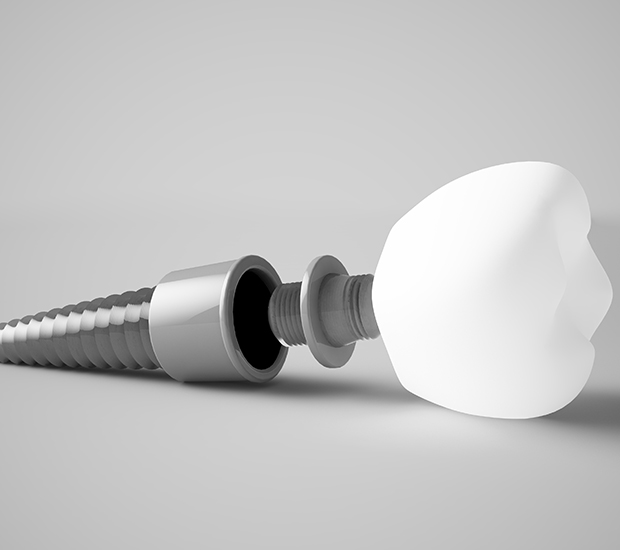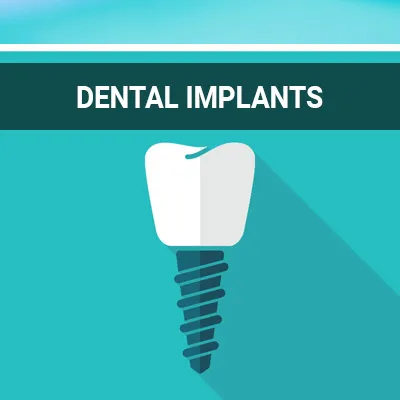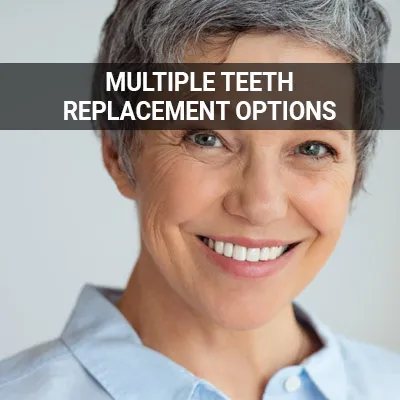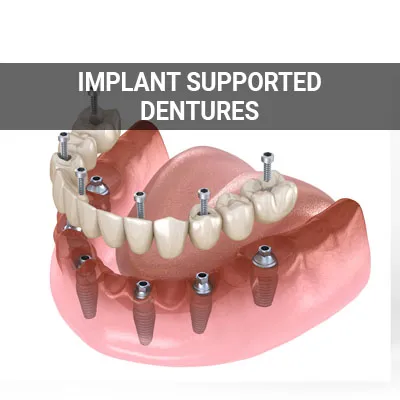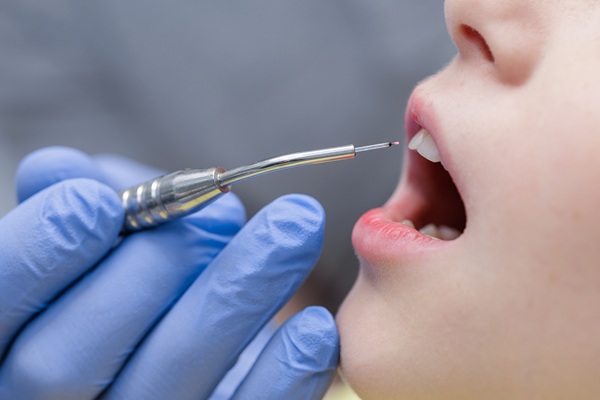Prosthodontist Cumming, GA
Prosthodontics is a field within dentistry that focuses on restoring missing or deficient teeth. The term comes from the words "prostho," meaning replacement, and "dontics" referring to the teeth. Prosthodontists are dental specialists who treat patients using prosthetics such as crowns, implants, bridges, dentures, and bonding.
Prosthodontics is available at North Georgia Smiles in Cumming and the surrounding area. We can help you better understand your condition and discuss treatment options that best suit your lifestyle. Call us today at (770) 889-7867 to schedule an appointment or learn more about our services.
Prosthodontics Explained
The American College of Prosthodontics defines the term as a dental specialty responsible for the diagnosis, treatment planning, rehabilitation, and maintenance of the oral function, comfort, appearance, and health of patients with clinical conditions. These conditions are associated with missing or deficient teeth or oral and maxillofacial tissues. Prosthodontists have the specialized training and experience in providing treatments that restore both aesthetic and oral function.
Possible treatments for restoring missing or deficient teeth include bone grafts, dental bonding, prosthetics, and cosmetics. Each treatment comes with its own set of advantages and disadvantages, which are explained after the initial consultation appointment. Thoroughly examining the patient allows our team to give a proper diagnosis and recommend treatments that work for their condition.
“They are specially trained and experienced in providing treatments that restore both aesthetic and oral function.”
Fixed Prosthodontics vs. Removable Prosthodontics
Prosthodontics covers a wide range of services and treatments, some fixed and others removable.
Fixed Prosthesis
Fixed prostheses are permanent appliances that stay on a patient's teeth. They are commonly used when a patient has one or more missing teeth that are close together. Fixed prostheses include bridges, inlays, onlays, crowns, and veneers, all of which improve patients' smiles.
Removable Prosthesis
Removable prostheses are dental appliances that can be taken out, usually for cleaning the teeth and gums. These appliances are typically used for patients with the majority of their teeth needing restorations. Removable prostheses include partial or complete dentures and rebasing and relining treatments.
“Prosthodontics covers a wide range of services and treatments, some fixed and others removable.”
Why Prosthodontics
Patients who can benefit from a prosthodontist's care and knowledge often have complex or atypical dental restoration needs. A prosthodontist can help with the following issues:
- Cleft palates or missing teeth
- Complete and removable partial dentures
- Complex care management
- Cosmetic dentistry
- Dental implants
- Oral cancer reconstruction
- Snoring and sleep disorders
- Temporomandibular joint syndrome/disorder
- Tooth replacement
- Traumatic facial injuries
While cosmetic dentists and general dentists can provide care for some of the above issues, consultation with a prosthodontist before undergoing dental restoration helps explore various treatment options. Prosthodontists have advanced training and utilize the most current restoration technology and techniques. Moreover, these professionals work with an understanding of the mouth's intricate dynamics, which helps achieve optimal smile makeover results.
“Prosthodontists have advanced training and utilize the most current restoration technology and techniques.”
Check out what others are saying about our dental services on Yelp: Prosthodontist in Cumming, GA
Treatments Covered by Prosthodontics
Each prosthodontist will vary in the treatments they offer. The Institute of Medical Sciences and Research Centre lists the treatments included under the branch of prosthodontics:
- Complete dentures: full set of artificial teeth
- Removable or fixed partial dentures: a set of teeth close together
- Overdentures: attach healthy teeth to artificial teeth
- Immediate dentures: placed immediately after an extraction
- Implants: artificial tooth roots implanted into the jawbone used as an attachment for a prosthetic
- Full mouth reconstruction: a combination of treatments done to completely restore aesthetic and oral function
- Maxillofacial prosthodontics: treatments for defects in the head and neck
- Aesthetic prosthodontics: treatments primarily done for aesthetic purposes
- Gnathology: treatment of temporomandibular joint and other related disorders
In some cases, only one or a few options will work for a patient due to conditions, medications, or complications they may have. Possible treatment options for each patient are discussed during the consultation appointment, and patients will be able to choose the one that works best for them.
“Possible treatment options for each patient are discussed during the consultation appointment, and patients will be able to choose the one that works best for them.”
Questions Answered on This Page
Q. Why should I see a prosthodontist over a cosmetic or general dentist?
Q. How fixed prosthodontics vs. removable prosthodontics are different?
Q. How can a prosthodontist become board-certified?
Q. What treatments are covered by prosthodontics?
Q. What reconstructive dentistry options exist?
People Also Ask
Q. What are the benefits of dental implants?
Q. How does age affect your options when it comes to replacing missing teeth?
Q. When is bone grafting necessary?
Q. Are there temporary replacements for teeth?
Q. What should I know about post-procedure care and adjusting to a healthy life?
Q. What are the different types of dentures?
Q. What can patients do to reduce their anxiety about receiving a dental implant?
Reconstructive Dentistry
Reconstructive, or restorative, dentistry refers to the practice of replacing missing or damaged teeth and falls under prosthodontics. Reconstructive dentistry includes full mouth reconstruction and other aesthetic and functional treatments for one or more missing teeth. Reconstruction is often necessary as it can help:
- Fill empty spaces in the mouth, keeping the teeth in proper alignment
- Replace teeth, making it easier to maintain good oral care habits and help prevent plaque build-up
- Improve patient health, appearance, and self-esteem
Reconstructive treatments can be done by a prosthodontist, dentist, or reconstructive dental professional. Treatment options include fillings, crowns, bridges, and implants. Reconstructive dentistry focuses primarily on both restoring aesthetic and oral function as well as reconstructing the mouth to prevent further dental complications from arising.
“Reconstructive, or restorative, dentistry refers to the practice of replacing missing or damaged teeth and falls under prosthodontics.”
Frequently Asked Questions
Q. Why should I seek a prosthodontist instead of a general dentist?
A. It is wise to choose a prosthodontist for reconstructive or restorative dental concerns as they are specially trained to provide treatment for missing and damaged teeth. They will also likely have special tools and equipment designed for prostheses and can better treat more complex cases. A general dentist may refer their patient to a prosthodontist when the need arises.
Q. How can I properly care for my restored teeth?
A. Patients with dental restorations can keep their teeth healthy using a lifelong recall and maintenance approach, reducing the risk for failure of tooth and implant-borne restorations.This approach poses that patients who schedule and meet their routine checkups and follow-up appointments, especially when feeling symptoms, and regularly maintain their oral hygiene as well as take care of all treatments immediately are more likely to keep their prosthesis and teeth healthy.
Q. How often are follow-up appointments for prosthodontic treatments?
A. We recommend patients schedule follow-ups every six months to clean, adjust, repair, or replace their restorations. We ensure the prosthesis is working properly during these routine examinations and is not affecting any surrounding teeth, bone, or gums. Routine follow-ups are the best way to maintain your prosthesis and keep your oral cavity healthy post-treatment.
Q. Are there any special home-care tips for restored teeth?
A. Patients with restored teeth should take extra precautions and practice thorough oral hygiene habits to keep their mouth well-maintained. Brush teeth with a fluoride toothpaste at least twice a day, floss at least once a day, use a mouthwash recommended by your prosthodontist, wear a night guard (if recommended by your prosthodontist) to protect your restorations, and avoid smoking or chewing tobacco and high-sugar or high-acid foods and beverages.
Q. How can I prepare for prosthodontic treatment?
A. During the initial consultation appointment, North Georgia Smiles will explain the chosen treatment in detail, ensuring the patient knows what to expect on the day of their procedure. We recommend patients sleep well the night before, brush and floss, and come in early to the appointment, which can help greatly reduce anxiety or fear.
Prosthodontist Terminology
Call Us Today
Prosthodontics can bring your smile back. We at North Georgia Smiles can help. Call us today at 770-889-7867 to schedule an appointment or learn more about our services.
Helpful Related Links
- American Dental Association (ADA). Glossary of Dental Clinical Terms. 2025
- American Academy of Cosmetic Dentistry® (AACD). Home Page. 2025
- WebMD. WebMD’s Oral Care Guide. 2025
About our business and website security
- North Georgia Smiles was established in 2005.
- We accept the following payment methods: American Express, Cash, Check, Discover, MasterCard, and Visa
- We serve patients from the following counties: Forsyth
- We serve patients from the following cities: Cumming, Alpharetta, Jones Creek, Suwanee, Milton, and Dawsonville
- National Provider Identifier Database (1326050824). View NPI Registry Information
- Norton Safe Web. View Details
- Trend Micro Site Safety Center. View Details
Back to top of Prosthodontist
